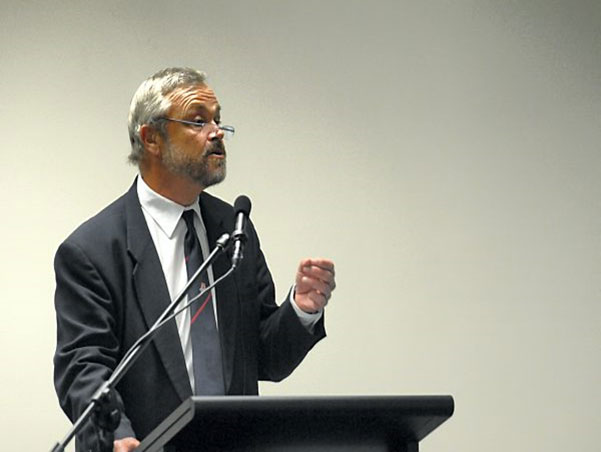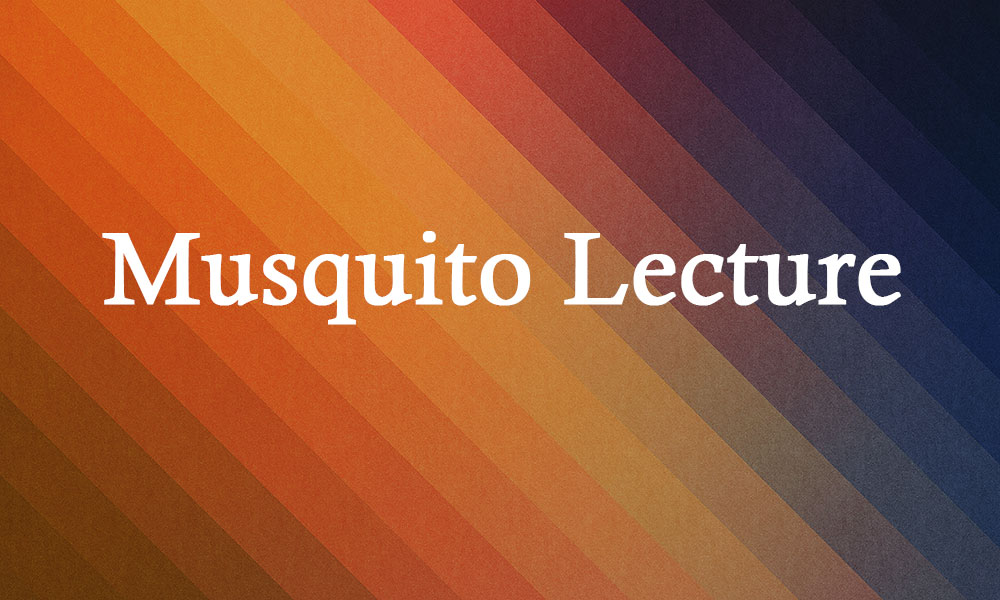
April 1 2012 – 9:37AM
`First war’ deserves place in history

Historian Dr Michael Powell discusses the life of Musquito as part of the Royal Society of Tasmania lecture series yesterday. Picture: PAUL SCAMBLER
HE has long been regarded as the catalyst for the early 19th century Black War but indigenous warrior Musquito could be seen as the first leader to band his people together, according to historian Dr Michael Powell.
The life of Musquito was discussed by the University of Tasmania’s Dr Powell as part of the Royal Society of Tasmania lecture series at the Queen Victoria Museum and Art Gallery at Inveresk yesterday afternoon.
The Black War is the term given to the period of hostilities between Tasmanian Aborigines and white settlers, particularly when the colonial government introduced martial law in 1828.
Dr Powell said indigenous Tasmanians were regarded as docile and separated into different tribal groups, but under the leadership of Musquito they came together for their common good, to fight the white settlers.
Originally from the Hawkesbury area north of Sydney, Musquito was transported to Van Diemens Land, where he led the attack against white settlers.
“What he told them is that `I’ve seen your future, I was on the Hawkesbury’,” Dr Powell said.
“I’ve seen what they’ve done to our people, we were decimated and you’ve got no choice but to fight back. I see your future, and you’re future is that you are dead.”
Dr Powell said although much was made of Australia’s involvement in wars overseas, the first war took place in Tasmania and it should be recognised as such. He said both sides of the war should be commemorated.

